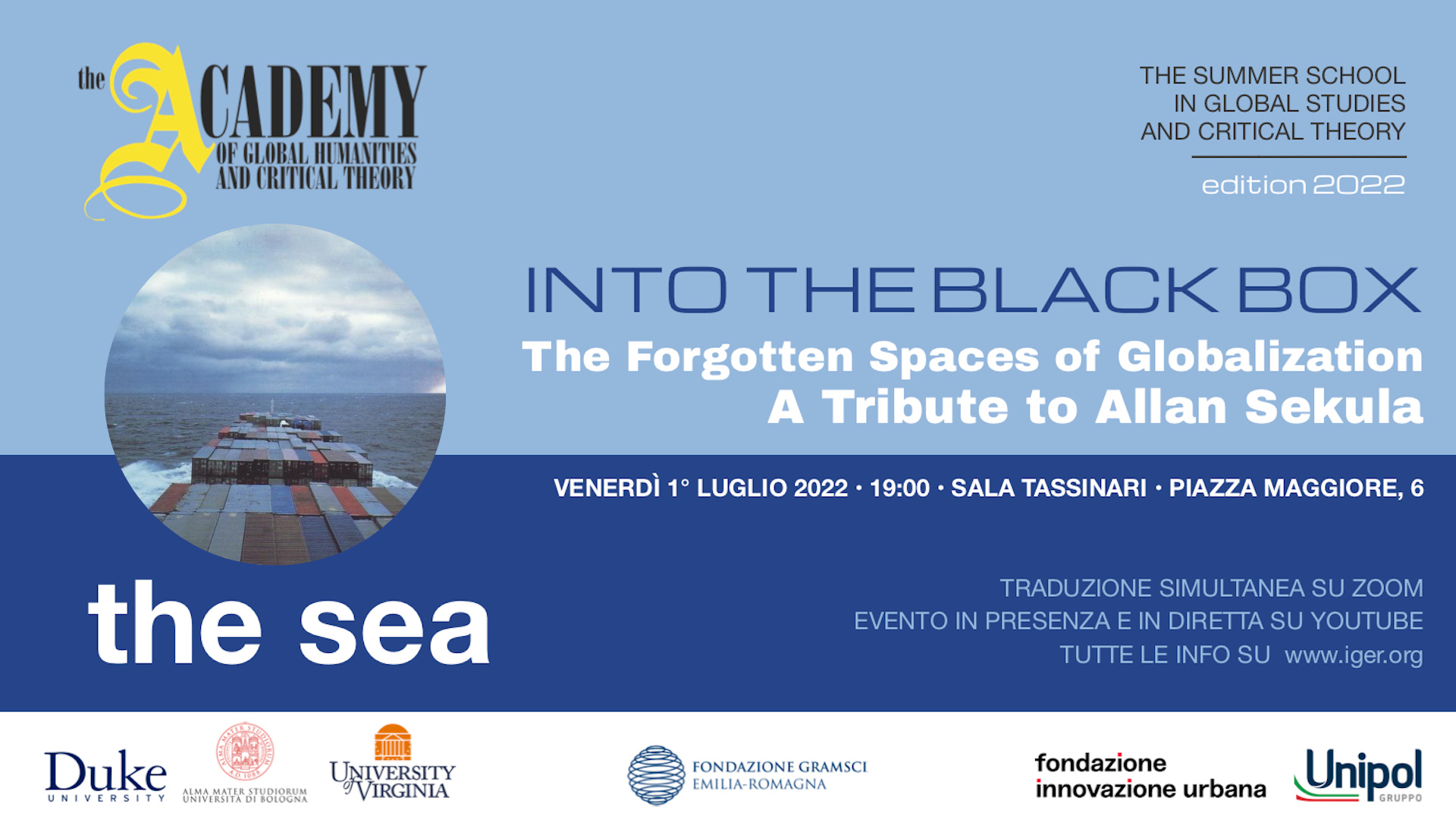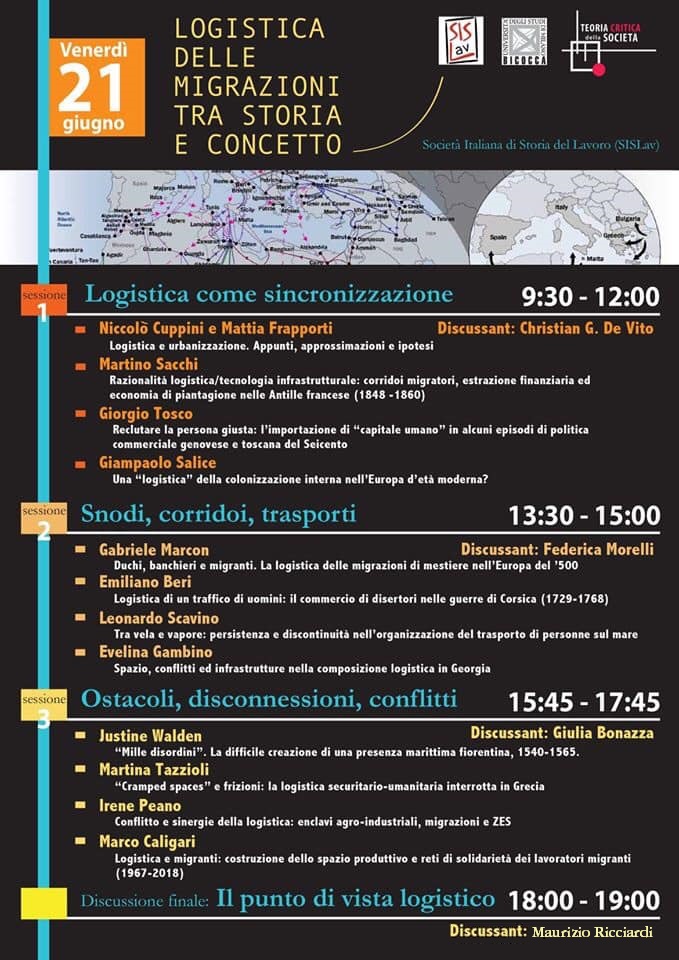Venue: Sala Tassinari at Palazzo d’Accursio, Piazza Maggiore 6, Bologna
Visiting Hours: 1-4-6-8 July 2022, 7-9PM
Exhibit Opening: Friday 1 July, 6.30 PM with Into the Black Box Collective, Martina Angelotti and Massimiliano Mollona
Globalisation has recently and prominently become a hot topic in the public debate. The disruption of supply chains during and after the outbreak of the pandemic remembered us that the abundance of goods is not a metaphysical condition, but the consequence of material infrastructures and commodities flows as well as human labour. The quick and in progress market reorientation that seems unavoidable after the War in Ukraine testifies both the global economic interdependency and the fragility of the growth promises. Do these processes mean, more generally, the end of globalisation?
Any well-argued answer to this question has first to clarify what we mean with this concept. In this sense, the more-than-twenty-years’ work of Allan Sekula (1951-2013) represents an incredible visual and textual archive on the vectors and processes that shaped globalisation as we knew it. Challenging the narrative of an immaterial capital, Sekula investigated the forgotten spaces – the sea – and the invisibilesed bodies – the workers – that everyday ensure capital’s operations. Combining photography with video-making and writing, Sekula explored the processes of territorialization and de-territorialization, which containerized shipping accelerated between the 1980’s and the new century that constituted the tail of so-called second wave of globalization. He leads us to discover spectral landscapes of de-industrialized plants in the West, ports and harbours flooding of commodities, cargo navies sailing the oceans, the formation of a new working-class in Asia, the family crisis of American blue-collars workers.
For this tribute exhibition, we selected three works that efficiently summarise the main features of his artistic production.
Fish Story is probably the most famous and influential book edited by Sekula. The volume – collecting 105 colour photographs and 26 black-and-white text panels divided into 7 chapters – is the outcome a global journey: departing from Los Angeles, the artist travelled from the east coast of the United States to the shores of Europe and Asia. His approach to the camera embodies a critical realism’ perspective challenging the 80’s disenchantment in favour of a social dimension of photography and documentary “embracing a hybridity of materials, playing with the relation between staging and the everyday event, understanding even that the everyday event embodied and element of fiction or theatre”. In this sense, Sekula depictes the ordinary life of seamen, post-industrial landscapes and bunches of containers as dramaturgical masks of wider forces and contradictions.
Dismal Science and Walking on Water are two cycles of slides sequences (part of Fish Story exhibition but not included in the published volume) of 80 projected slides each. There is a slight but meaningful slippage in the expressive form: Sekula introduces motion as these cinematic pictures or disassembled movie correspond to the attempt to both unpack capital operations and show their connections.

The Forgotten Space, partially inspired by his earlier work Fish Story, represents Sekula’s culminating investigation of the material dimensions of globalisation. The 112-minutes movie scripted and directed by Sekula with Noël Burch is an essay-film that surpasses the presumed objectivity of documentary combining a set of contrasting stylistic elements – archival footage, interviews, narrating voice. It has been awarded the Special Jury Prize in the Orizzonti Competition at the 2010 Venice Film Festival. Once again, the forgotten space that Sekula and Burch made visible is the sea where everyday cargo fleets – filmed in the ports of Bilbao, Rotterdam, Los Angeles and Hong Kong – appear to serve as the maritime network connecting ship containers connecting all the world through logistics.
More generally, Sekula’s works did not aim only to take a picture of invisible dynamics of contemporary neoliberal capitalism but operated as agitprop invitations. How to place ourselves in these flows? In this sense, this exhibition is not a tribute in the sense of a celebration of the past, but rather aims to reconnect with Sekula’s mode of analysis to deal with the challenges that globalisation confronts us with nowadays.



